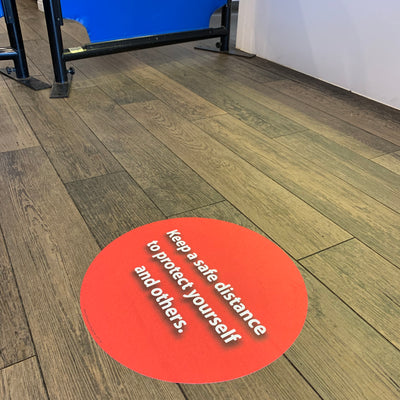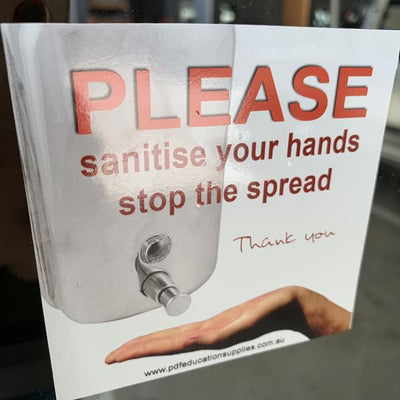Anaphylaxis & Asthma in Early Education
Centre-based services requirements All centre-based services approved under either the National Quality Framework (NQF) or the Children’s Services Act (CS Act) - such as, occasional care and limited hours services - must comply with the same requirements. At all times that children are being educated and cared for there must be at least one educator who: holds a current approved first aid qualification has undertaken current approved anaphylaxis management training has undertaken current approved emergency asthma management training. The same person may hold one or more of the above qualifications (including the nominated supervisor in occasional care and limited hours services). The educator(s) must be available: immediately in an emergency at all times at any place where children are being cared for - including on excursions or outings. Where children are being educated and cared for on a school site, these educators: may be in attendance at the school site...
-
May 03, 2024
SOCIAL DISTANCING
Steps for social distancing in the workplace include:
stop shaking hands to greet others
consider cancelling non-essential meetings. If needed, hold meetings via video conferencing or phone call
put off large meetings to a later date
hold essential meetings outside in the open air if possible
promote good hand, sneeze and cough hygiene
provide alcohol-based hand rub for all staff
eat lunch at your desk or outside rather than in the lunch room
regularly clean and disinfect surfaces that many people touch
open windows or adjust air conditioning for more ventilation
limit food handling and sharing of food in the workplace
avoid non-essential travel
promote strict hygiene among food preparation (canteen) staff and their close contacts
Businesses must do everything they can for Social Distancing
-
Apr 03, 2020
Sanitise hands on arrival
We are all aware of the current Coronavirus and with this in mind it is more important than ever that we follow correct hygiene procedures. Clean hands has always and will always be one of our best forms of defence against all germs.
PDF Education Supplies is committed to the healthy and safety of all, hence why we have added this vinyl sticker to our range it will act as a reminder to all that you require them to sanitise their hands prior to entry.
Germs from unwashed hands can be transferred to other objects, like handrails, table tops, or toys, and then transferred to another person's hands.
-
Jan 31, 2020
Back Care & Lifting Sticker
Back Care Policy - The centre will minimise the risk of back injury in child care staff and other staff members by applying principles of back care and correct lifting and carrying technique. To assist PDF Education Supplies have made this vinyl sticker to attach to items that require 2 people to lift. www.pdfeducationsupplies.com.au Tips for better back care: Have shelving, filing cabinets, and storage cupboards at suitable height to avoid stretching to reach them Where possible, kneel rather than bend down, to avoid neck and back problems Carry children only when necessary, in the correct way - with one arm under the child’s buttocks and your other arm supporting the child’s back. At the same time, hold the child facing you, as close to your body as possible, try to avoid carrying a child on your hip because this may strain your back Lift or move furniture using at least...
-
Sep 19, 2016
Keeping parents informed of illnesses
It is important and a requirement of the Occupational Health and Safety Regulation to keep a record of any illness or injury occurring to a centre staff, child, other staff member or visitor to the centre for the effective management of the illness or injury, and to help prevent future occurrences. Public liability, workers compensation and personal sickness and injury insurance policies also require to be informed.
This laminated poster will keep parents informed, simple write on and wipe off www.pdfeducationsupplies.com.au
-
Sep 05, 2016
No Smoking Signs
In accordance with the NEW No Smoking laws in Queensland from 1 September 2016, PDF Education Supplies have created 2 new products (1 x corflute weatherproof outdoor sign for the fence and 1 vinyl sticker for the windows and doors) www.pdfeducationsupplies.com.au no-smoking at or near under-age organised sporting events and skate parks no-smoking in and around approved early childhood education and care facilities, including kindergartens and places offering after school hour care no-smoking at public swimming pools no-smoking at outdoor pedestrian malls no-smoking at public transport waiting points such as bus stops, taxi ranks and ferry wharves no-smoking at prescribed national parks or parts of parks no-smoking at prescribed State Government precincts the no-smoking area at non-residential building entrances increases from 4 to 5 metres no sales of tobacco products from temporary retail outlets local governments may ban smoking at any other outdoor public place not already covered by state laws....
-
Aug 23, 2016
Suncream Stations in Early Education
To encourage self help and also to assist with your sun policy we have created this great weatherproof sign is perfect to leave outside where you have set up your suncream station(don't forget to see our Acrylic Sun Safety Mirror which will complement it very well. www.pdfeducationsupplies.com.au Australia has the highest incidence of skin cancer in the world and sun exposure during childhood significantly increases the risk of developing skin cancer and melanoma. Sand, concrete and water can reflect up to 85% of sunlight and intensify exposure to ultraviolet radiation. Children’s centre staff and centres can play a vital role in the long- term prevention of skin cancer and in teaching healthy sun habits to young children, and are responsible for preventing and reducing the risks from excess sun exposure while children are in their care Apply sunscreen in the amount according the instructions on the bottle. • Be aware...
-
Aug 11, 2016
Action plan for a medical emergencies
To ensure immediate action and appropriate procedures are undertaken in a medical, dental emergency or accident when contacting an ambulance,please have knowledge of the following : Assess the injury or illness, the severity and degree of urgency, administer first aid or cardiopulmonary resuscitation (CPR) as appropriate, call for an ambulance dial 000. Provide the following information: - your name, the name of the centre, address and phone number, Whether an ambulance, police or fire brigade is required, The name of the ill or injured person, Whether they are an infant, child or an adult, The name of the next of kin, parent or guardian, The nature of the illness, injury or emergency, An assessment of the severity of illness or injury, With the ambulance, you will be asked to state the urgency of the situation, If the person is unconscious, whether they are breathing or have a pulse, If the...
-
Jul 27, 2016
Storage of Dangerous Goods
This vinyl sticker will ensure that it does not fall off the cupboard and all are aware of potential dangers storage The centre will protect child centre staff, children, families and visitors from the risks associated with chemical products, medicines, other dangerous substances and dangerous equipment used in the centre and environs. Accidental poisoning is the second most common hospital admission for child injuries in Australia, and 75% of accidental poisonings are attributed to medications. The most common accidental poisonings involve respiratory and cough medications, antihistamines, paracetamol, iron tablets, benzodiazepines, and eucalyptus and other vapouriser oils. Other main agents of poisoning in children are household chemicals, especially pesticides including snail bait and mothballs, bleach and other cleaners, detergents, solvents, petroleum and kerosene and cosmetics. Many of these chemical products are routinely used in children’s centres and are potentially hazardous, either by ingestion, inhalation or skin contact. Pesticides and volatile chemicals...
-
Jul 25, 2016
Baby Bottle Preparation Area
Safe Food Handling practice includes having a designated area for preparation of bottles for children under 2. We have made this vinyl sticker to assist with this www.pdfeducationsupplies.com.au Use the following principles in preparing infants’ bottle feeds: 1. Store bottles of milk in the refrigerator, do not store in the door of the refrigerator. 2. Use only sterilised bottles and teat assemblies for all infant feeds. 3. Wash hands before preparing or handling expressed milk or formula. 4. Prepare formula strictly according to instructions on the container. 5. Do not use a microwave for heating expressed breast milk, formula milk, or any bottled milk or fluid. 6. Warm bottles by standing in warm/hot water. 7. Warm infant milk bottles only once. 8. Test the temperature of the milk on your wrist before giving it to the baby. 9. Discard any unused infant milk leftover after each feed or that has...
-
Jul 22, 2016
Showing 1 - 10 of 10 results











